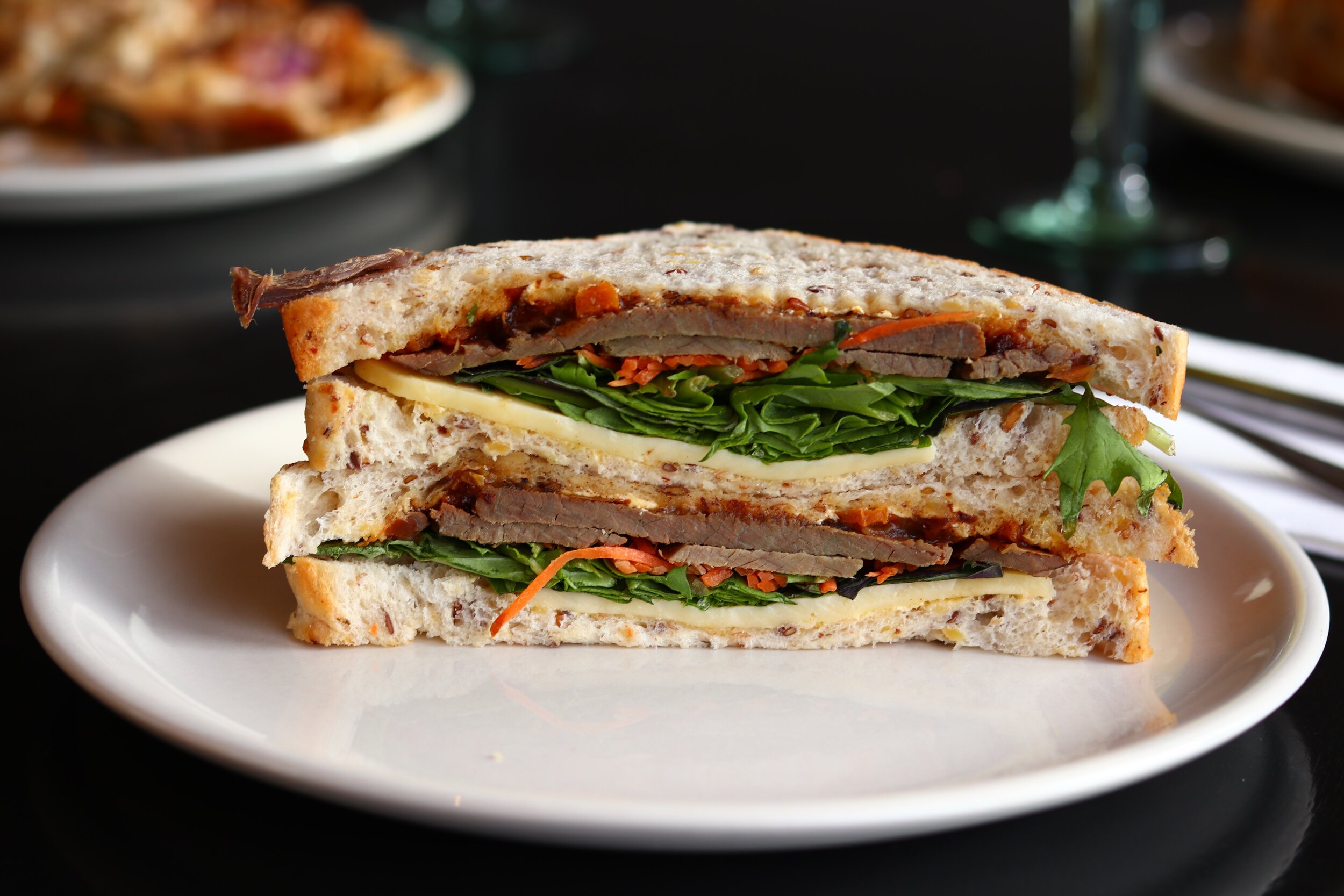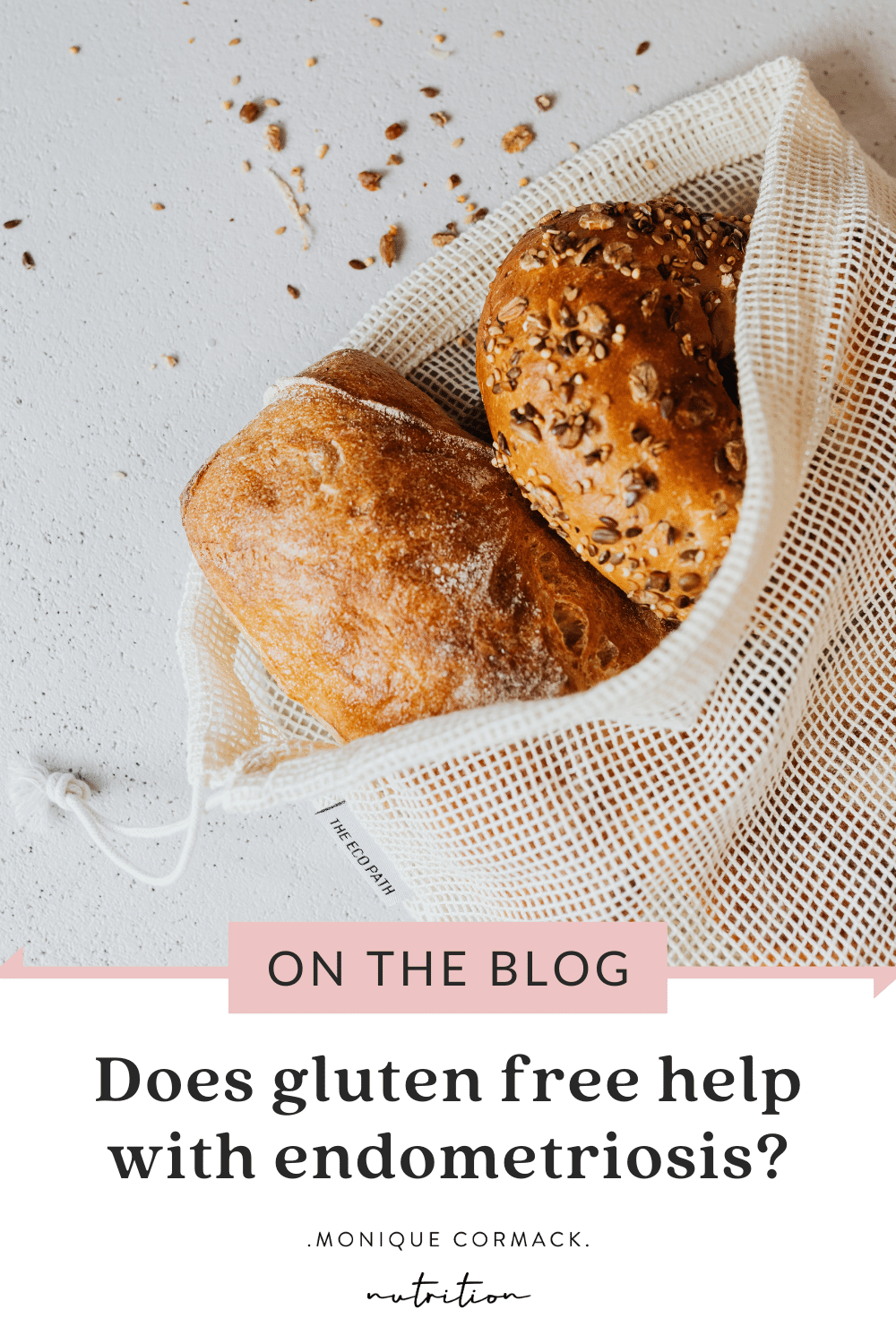Does going gluten free help endometriosis?
Can going on a gluten free diet be helpful for endometriosis? Let’s discuss what the science says and talk about some other options for managing endometriosis symptoms through diet.
As March is Endometriosis Awareness Month, I wanted to post some nutrition-focused content on endometriosis this month.
Endometriosis is a chronic condition where tissue similar to that which grows inside the uterus also grows in other areas of the body. This may be around the reproductive organs (e.g. around the ovaries) or it may extend within the pelvic cavity. It can cause significant pain and inflammation, fertility issues, gastrointestinal issues and more.
One of the questions that I am often asked is what the “best diet” for endometriosis is… and does that diet involve going gluten free?
What does the science say?
Contrary to what you may think, there isn’t actually a huge amount of research on whether a gluten free diet specifically helps endometriosis.
We have a small amount of research which suggests that a gluten free diet is able to significantly reduce painful endometriosis symptoms. In a study where women stayed on a gluten free diet for 12 months, 75% of those women (157 women) reported a significant positive change in their symptoms (Marziali et al., 2012).
Now, a significant reduction in painful symptoms can be a really big deal for someone with endometriosis, and I don’t want to downplay this research.
The long-term pain experienced in endometriosis is not just a “bad period.” It can be debilitating, and if making a dietary change can potentially reduce symptoms, it can be worth considering even if the research is presently limited.
Why else would you go gluten free with endometriosis?
A definite reason to go gluten free would be if you also have coeliac disease! Probably very obvious, but had to say it.
Outside of coeliac disease, some individuals can report sensitivity to consuming gluten-containing foods, which is sometimes termed Non Coeliac Gluten Sensitivity.
If you have endometriosis and are concerned that gluten is something you are sensitive to, then it is worth discussing this with a nutritionist/dietitian. They will help you work out if gluten really is a trigger food for you, and if it is, how to develop a healthy diet that is gluten free.
What else can you try?
A significant proportion of people with endometriosis also have symptoms of Irritable Bowel Syndrome (IBS), and in fact people with endometriosis are more likely to be diagnosed with IBS compared to those without (Seaman et al., 2008).
The low FODMAP diet is a dietary approach to the management of IBS and this may be an approach to try if you have been diagnosed with endometriosis and are experiencing gastrointestinal/abdominal symptoms such as:
Bloating
Cramping
Gas
Diarrhoea, constipation or alternating episodes of these
Mucous in the stools
Nausea
FODMAPs stands for “fermentable oligosaccharides, disaccharides, monosaccharides and polyols”, these are certain types of carbohydrates found in foods. On a low FODMAP diet these are eliminated/reduced for a period of time to help improve gastrointestinal symptoms. This is not the same as going gluten free.
Before you go running off to start the low FODMAP diet yourself, it is strongly recommended that this diet is undertaken under the supervision of a nutrition professional.
The low FODMAP diet involves a staged elimination/reintroduction phase and should be managed by someone with expertise. You are NOT meant to remain in elimination of FODMAP-containing foods forever!
What are the risks of a gluten free diet for endometriosis?
Well first of all, a gluten free diet may not help you, so you may be unnecessarily restricting your foods without actually achieving results. Think about what you are trying to achieve - what symptoms do you have? What do you want to change?
Going gluten free is not in any way a “cure” for endometriosis. It is something you would do to reduce the symptoms that you notice.
From a nutrition perspective the key risks of a gluten free diet are:
Reduced dietary fibre intake: gluten is found in many grains so when you go gluten free you are not able to consume lots of higher fibre, wholegrain foods (breads, pasta, noodles, wraps, etc). While there are some pretty good gluten free alternatives out there, many gluten free substitute products are not so good. One thing they can lack is fibre, as they are made with low-fibre flour alternatives like white rice flour, potato or corn starch.
Reduced nutrient intake: when you remove something from your diet, you reduce your opportunity to take in nutrients from those foods. As I just mentioned, some gluten free substitute foods may not be made with ingredients that provide equivalent nutritional value. On top of this, some foods like bread are fortified with nutrients like folic acid and iodine, but the gluten free version may not always be.
There’s also overall quality of life to consider. Having to maintain a restricted diet isn’t really that fun! If you’re out and about in a rush, or maybe travelling through a remote area, you might find your food options pretty limited. You need to check the menu when you go out and may need to put in special requests in advance.
If you want to trial a gluten free diet
Please consult a nutritionist or dietitian before starting a gluten free diet for endometriosis, preferably someone who has experience with endometriosis clients so they will be able to offer you the right guidance and support.
Keep a food and symptom diary so that you are able to track any changes.
It’s also important to discuss any dietary changes with your doctor and/or specialist.
Are you wondering what dietary changes can be helpful for endometriosis? Besides the gluten free diet, there are other nutrition strategies that can be used as well! I work with clients 1:1 to address their unique needs, everyone with endometriosis has their own individual experience of this condition. Book a complimentary 15 minute call with me to discuss how we can work together.






